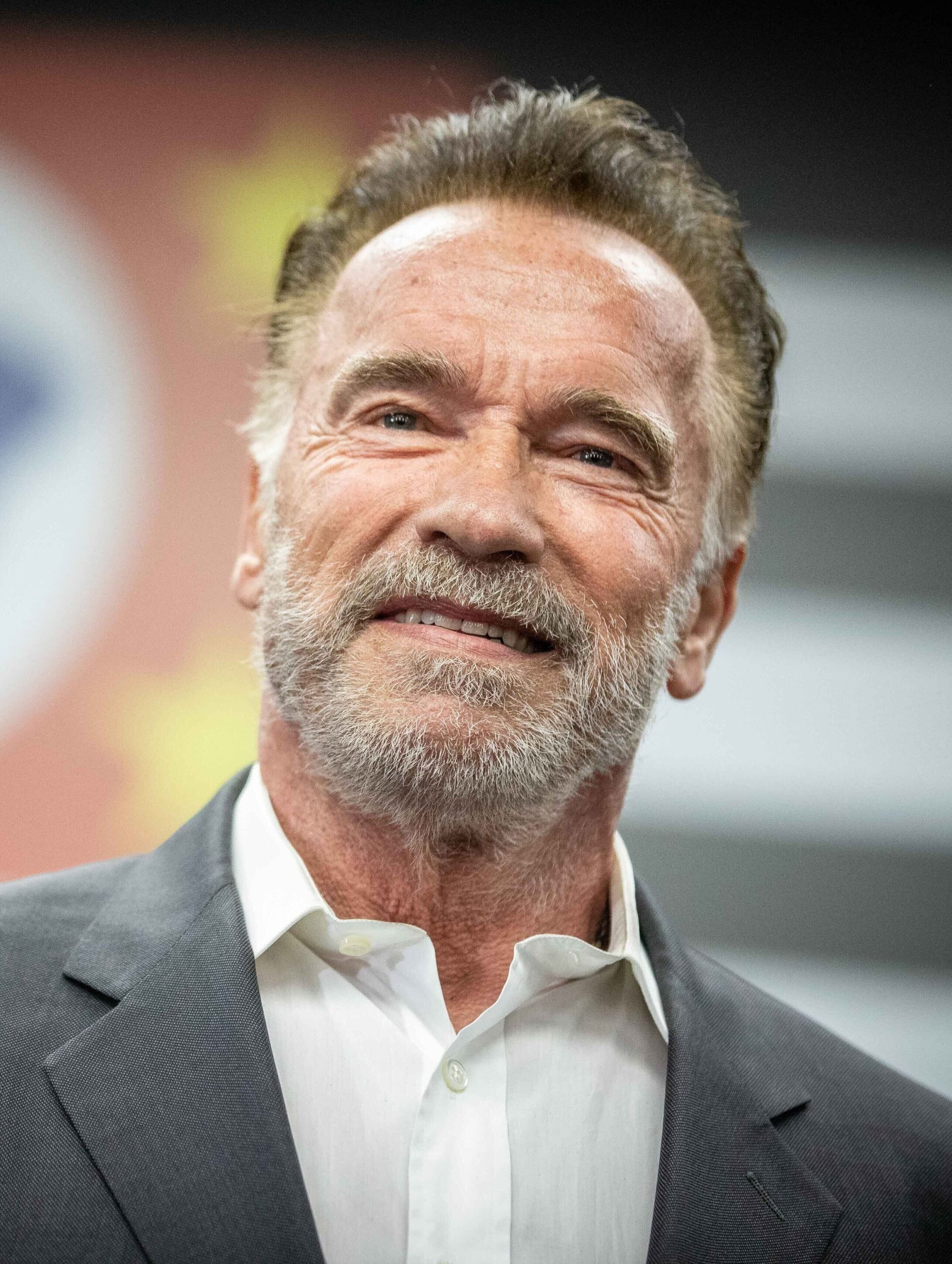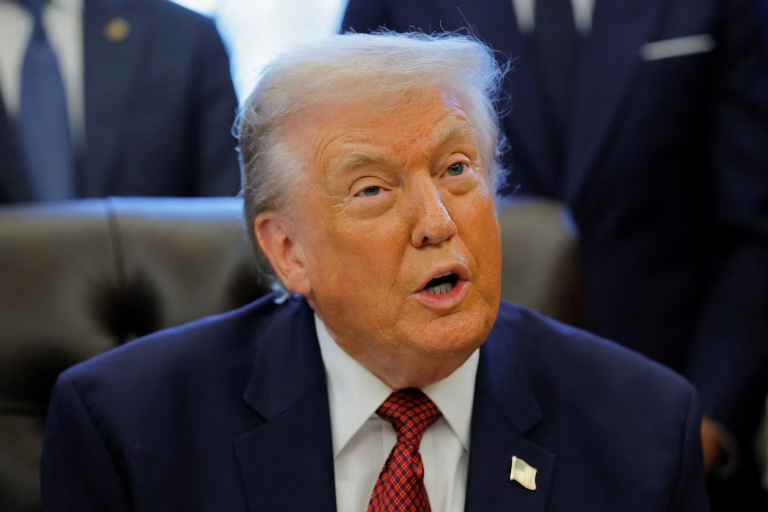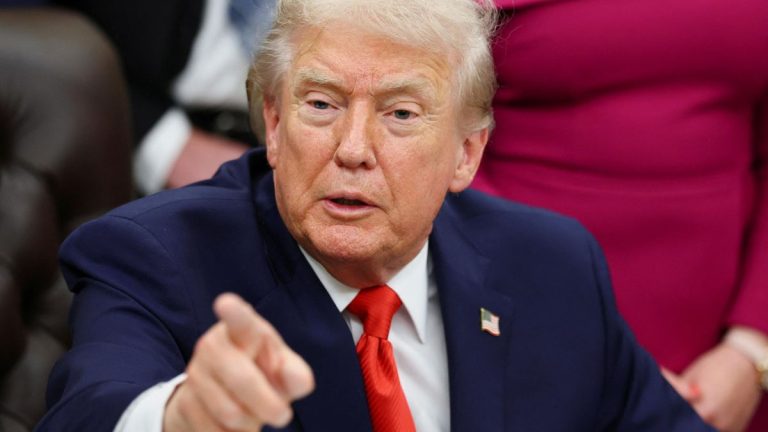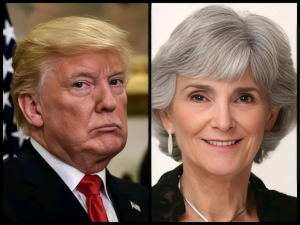Former California Governor Arnold Schwarzenegger publicly criticized Governor Gavin Newsom’s defense of Proposition 50 — a controversial redistricting initiative that would temporarily alter the state’s congressional boundaries — during an interview on CNN’s State of the Union with Jake Tapper on Sunday.
The exchange underscored a growing debate over the future of political representation in California, as the proposed measure could significantly influence the composition of congressional seats ahead of the 2026 elections.
Schwarzenegger, who served as governor from 2003 to 2011 and was instrumental in establishing California’s independent redistricting commission, dismissed Newsom’s assertion that the measure’s effects would be “temporary,” calling it a “total fantasy.”
“When they say this is temporary, there is no such thing,” Schwarzenegger told Tapper. “The longest programs are government programs that are temporary. Okay, just remember that — if this is a tax program or if it is the redistricting program, anything that is temporary with government is permanent.”
The comments came in response to a clip of Newsom defending the measure, known as Proposition 50, which he argues is necessary to counteract what he described as aggressive gerrymandering in Republican-led states.
Background: Proposition 50 and Its Impact
Proposition 50, endorsed by Governor Newsom and several Democratic leaders, would modify congressional district lines in California before the 2026 elections. The proposal seeks to add up to five additional Democratic-leaning districts, a change supporters claim will balance national redistricting trends that have favored Republicans in states such as Texas, Ohio, and Florida.
Former President Barack Obama publicly endorsed the measure last week, calling it a “temporary corrective measure” aimed at “restoring fairness” in national representation.
Voting on Proposition 50 began in late October, with polls open statewide. The measure has become one of the most closely watched ballot initiatives of the election cycle, as its passage could shift the political balance in the U.S. House of Representatives, potentially offsetting Republican gains from new district maps in other states.
Schwarzenegger’s Redistricting Legacy
Schwarzenegger’s opposition carries particular weight due to his own history with redistricting reform. As governor, he was a central figure in championing the creation of California’s Citizens Redistricting Commission — an independent, nonpartisan body established through voter-approved Proposition 11 in 2008 and expanded in 2010 to include congressional districts.
The commission was designed to remove direct political influence from the process, promoting fairness and transparency in how electoral maps are drawn.
Schwarzenegger, a vocal advocate for nonpartisan reforms even after leaving office, has often spoken against efforts to return redistricting authority to elected officials. He has described gerrymandering as “the biggest political scandal that nobody talks about.”
During the CNN interview, he warned that labeling Proposition 50 as a “temporary” fix could set a dangerous precedent.
“In the year 2032, when the independent redistricting commission is supposed to come back, they’re going to say, ‘Wait a minute — there’s still gerrymandering going on in Texas, in Ohio, in Florida. We have to continue this.’ This is what’s going to happen. They will find an excuse,” Schwarzenegger said. “So therefore, I don’t think it is temporary.”
Newsom’s Response
Governor Newsom responded later on Sunday, rejecting claims that Proposition 50 undermines democratic fairness.
“Spare me the moral high ground,” Newsom said, referring to critics who argue the measure politicizes California’s redistricting process. “We are not going to stand by while other states carve up congressional maps to entrench partisan power.”
Newsom has maintained that Proposition 50 is a limited-term measure, intended to expire in 2032 when the state’s independent redistricting commission is scheduled to reassume authority.
His administration argues that maintaining current boundaries would disadvantage California voters by leaving national representation unbalanced.
“The principle of fairness means every state should play by the same rules,” Newsom said in a press briefing earlier this month. “If other states manipulate maps for political gain, we have a moral responsibility to defend our democracy.”
Political and Public Reactions
The debate over Proposition 50 has divided California’s political establishment. Democrats have largely lined up behind the measure, framing it as a necessary response to national redistricting battles. Republicans and independent watchdog groups, however, have condemned it as an attempt to manipulate the process for partisan benefit.
California Republican Party Chairwoman Jessica Millan Patterson criticized the initiative as “a power grab disguised as reform,” arguing that it contradicts the state’s previous commitments to independent redistricting.
Meanwhile, organizations like Common Cause California and the League of Women Voters have expressed concern about the precedent the measure might set, even if temporary.
“California has been the model for fair redistricting for more than a decade,” said Kathay Feng, national redistricting director at Common Cause, in a statement last week. “Undoing that independence for political reasons sends the wrong message to voters across the country.”
The National Context
Proposition 50 is part of a broader national struggle over redistricting that has intensified since the 2020 Census. Both major parties have pursued legal and legislative strategies to influence congressional maps, often leading to accusations of gerrymandering — the manipulation of district boundaries to favor one political party over another.
In recent months, several states have faced lawsuits over redistricting practices. Federal courts have intervened in Alabama, Georgia, and Louisiana, requiring maps to be redrawn after judges ruled that minority representation was unfairly diluted.
In Texas and Florida, Republican-led redistricting efforts have strengthened conservative representation, prompting Democrats to seek countermeasures in blue states like California and New York.
Schwarzenegger’s critique of Proposition 50 taps into this broader tension, positioning him as a defender of institutional independence rather than partisan advantage.
“It doesn’t matter if it’s Democrats or Republicans doing it — gerrymandering is wrong either way,” he said. “Once you open that door, no one wants to close it again.”
Media and Public Debate
Media outlets across the political spectrum have highlighted the Schwarzenegger-Newsom exchange as emblematic of a deeper philosophical divide within California’s Democratic leadership. While both leaders share progressive policy leanings on climate, healthcare, and education, they differ sharply on governance principles and long-term institutional integrity.
Public sentiment remains mixed. Early polling by the University of Southern California’s Schaeffer Center shows 47% of likely voters supporting Proposition 50, 41% opposing, and 12% undecided. The poll suggests that Schwarzenegger’s criticism could influence independent voters and moderates who value California’s tradition of nonpartisan redistricting.
Political analysts note that the initiative’s outcome could serve as a bellwether for how voters nationwide view partisan redistricting efforts, particularly in swing states ahead of the 2026 midterms.
Looking Ahead
With voting underway and national attention focused on California’s ballot box, Proposition 50 has emerged as one of the most consequential state-level measures of the year. Its approval could reshape the political landscape not only in California but across the country.
For Schwarzenegger, the issue touches on a legacy of reform he considers essential to democratic accountability. For Newsom, it represents a political necessity in an era of partisan polarization and shifting electoral boundaries.
Whatever the outcome, the clash between two of California’s most recognizable governors underscores a timeless question in American democracy: how to balance fairness with strategy — and principle with power.

Emily Johnson is a critically acclaimed essayist and novelist known for her thought-provoking works centered on feminism, women’s rights, and modern relationships. Born and raised in Portland, Oregon, Emily grew up with a deep love of books, often spending her afternoons at her local library. She went on to study literature and gender studies at UCLA, where she became deeply involved in activism and began publishing essays in campus journals. Her debut essay collection, Voices Unbound, struck a chord with readers nationwide for its fearless exploration of gender dynamics, identity, and the challenges faced by women in contemporary society. Emily later transitioned into fiction, writing novels that balance compelling storytelling with social commentary. Her protagonists are often strong, multidimensional women navigating love, ambition, and the struggles of everyday life, making her a favorite among readers who crave authentic, relatable narratives. Critics praise her ability to merge personal intimacy with universal themes. Off the page, Emily is an advocate for women in publishing, leading workshops that encourage young female writers to embrace their voices. She lives in Seattle with her partner and two rescue cats, where she continues to write, teach, and inspire a new generation of storytellers.








